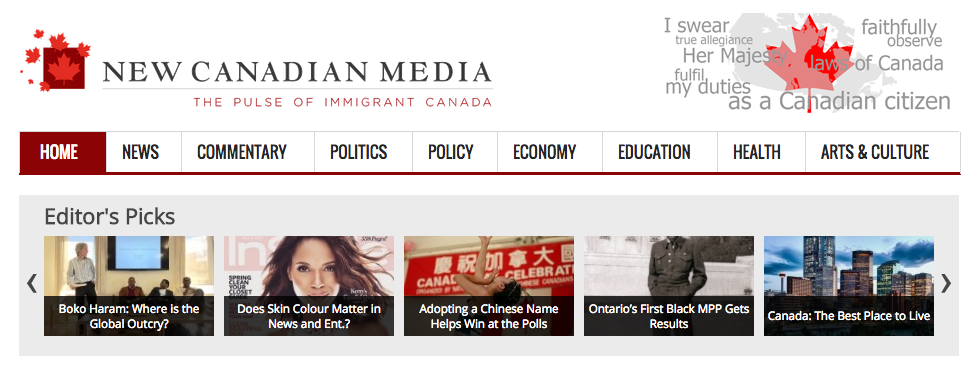Later this year, New Canadian Media will launch a series of skills-based workshops for third-language (i.e., neither English nor French) newsrooms across the country.
By Chantal Braganza, Associate Editor
George Abraham had a simple, if grand, rationale when he set out to launch New Canadian Media just over a year ago. “I believe the immigrant point of view is not adequately reflected in the media,” he told J-Source at the time. “I’m not saying it’s entirely absent, but it’s not enough.”
In the 12 months since, the digital news hub has reported on stories as they relate to multi-generational immigrant communities across Canada; published editorials on policy, economy, education and health and syndicated English-language reporting from some of the thousands of ethnocultural newspapers that publish across the country today.
This year, New Canadian Media will launch a project that Abraham and his colleagues hope will have an impact outside of the non-profit organization: a series of skills-based workshops geared towards third-language (i.e., neither English nor French) newsrooms.
“What we’re trying to do is put out a questionnaire to ethnic media outlets and journalists to find out what professional skills we can help them with to raise professional standards and practices,” Abraham said.
The surveys, which will be distributed by partner news outlets and Simon Fraser University, will gather information on newsrooms’ perceived training needs in such areas as digital storytelling, libel and FOI law or video and sound editing. Based on the responses, a network of participating journalism schools, including those at SFU, Ryerson University, the University of British Columbia and Carleton University, will develop training workshops that will then be delivered in newsrooms across Canada later in the year.
[node:related]
The workshops, which Abraham said will be offered free of cost to participants, are meant to bridge training gaps that often exist between ethnocultural and mainstream outlets.
“We know the sector is volatile and fast growing,” said SFU School of Communication professor Catherine Murray, who is advising on the project. “It’s much larger than official stats in Canada would suggest.”
“We also know the labour force attracted to this sector is more skilled than ever, but the search for credentialization and recognition for their expertise is difficult,” Murray said. “Skill transfer is not as easy as you would think. There’s different news cultures, different reporting traditions.”
In 2007, Murray and two PhD student researchers completed a province-wide study of ethnic media in B.C. that points to some of these differences, which range from structural (staffing teams are often smaller, sometimes volunteer) to practical (the study points to some outlets’ differing practices in using full-face photos in news coverage, for example).
The data collected from the surveys will also have research value. “We have an agreement that the info will be public,” Murray said, adding that there will be plans to present and publish on the results.

